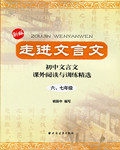One day, a professor entered the classroom and asked his students to prepare for a surprise test. They waited anxiously at their desks for the test to begin. The professor _______ the question papers, with the text facing down as usual._______ all the students got the papers, he asked them to _______ the page and begin. To everyone's surprise, there were no _______ , just a black dot (点) in the center of the page. The professor, seeing the expression on everyone's face, told them the following:
"I want you to write what you _______ there.”
The students,_______, got started on the inexplicable (令人费解的) task.
At the end of the class, the professor _______ all the answer papers and started reading each one of them aloud in front of all the students. All of them, with no _______, described the black dot, trying to explain its position in the middle of the sheet, etc. After all had been _______, the classroom was silent, the professor began to explain:
"I'm not going to grade this. I ________ wanted to give you something to think about. No one wrote about the ________ part of the paper. Everyone focused on the black dot, and the same happens in our ________. We have a white paper to observe and ________, but we always focus on the dark spots. Our life is a ________ given to us with love and care and we always have ________ to celebrate: nature renewing itself every day, our friends around us, the job that ________ our livelihood and the miracles we see every day.
________, we insist on focusing only on the dark spots: the health issues that bother us, the lack of money, the ________ relationship with colleagues(同事), the ________ with a friend, and etc.
The dark spots are very ________ compared to everything we have in our lives, but they are the ones that pollute our minds. "
1.A. pointed at B. turned up C. referred to D. handed out
2.A. Since B. After C. While D. Until
3.A. fold B. open C. turn D. use
4.A. questions B. choices C. exercises D. scores
5.A. remember B. imagine C. see D. study
6.A. confused B. frustrated C. curious D. serious
7.A. finished B. collected C. marked D. selected
8.A. excuse B. doubt C. explanation D. exception
9.A. read B. said C. returned D. answered
10.A. also B. even C. just D. finally
11.A. big B. black C. white D. beautiful
12.A. studies B. classrooms C. colleges D. lives
13.A. send B. enjoy C. keep D. show
14.A. present B. burden C. pressure D. lesson
15.A. festivals B. time C. freedom D. reasons
16.A. threatens B. provides C. ruins D. changes
17.A. Besides B. Therefore C. However D. Moreover
18.A. close B. strong C. special D. complex
19.A. disappointment B. contact C. satisfaction D. stay
20.A. dark B. small C. round D. dirty
 走进文言文系列答案
走进文言文系列答案 走进文言文系列答案
走进文言文系列答案